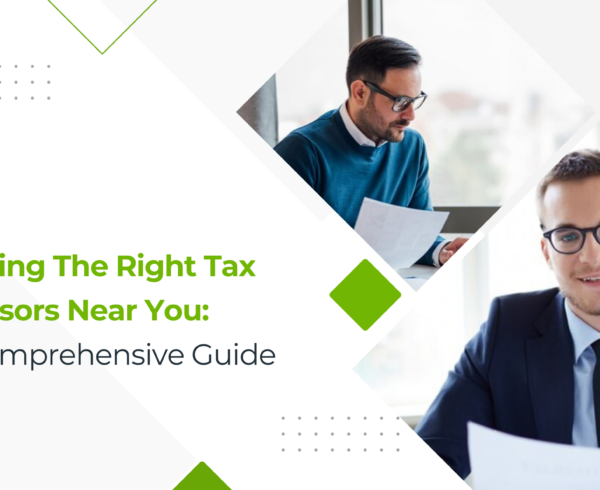Tax on Capital Gains is a significant consideration for both individuals and businesses in the UK, affecting the financial outcomes of asset sales. With recent changes in the UK’s Capital Gains Tax (CGT) regulations, it’s important to understand how these alterations could impact your financial planning and tax liabilities. In this blog, we will delve into what Capital Gains Tax is, the current tax rates in the UK, how CGT works, and the implications of the latest changes in CGT regulations. Stick till the end to learn about the tax reliefs on capital gains you can apply for.
What is Capital Gains Tax?
Capital Gains Tax (CGT) is a tax levied on the profit made from the sale of an asset that has increased in value. The tax is calculated based on the gain, which is the difference between the sale price and the purchase price, for assets held for more than one year. Common assets subject to CGT include:
● Shares
● Investment funds
● Second properties
● Inherited properties
● Business sales
● Valuables like art, jewellery and antiques
● Assets transferred below market value
Tax on Capital Gain in UK does not apply to assets that are part of a trader’s regular business activities, such as stocks bought and sold by a stockbroker. Instead, it is levied on non-traded assets to reflect the risk taken by the asset holder.
Tax Rate on Capital Gains in the UK
From the 2024/25 tax year, individuals can benefit from an annual CGT allowance of £3,000. Beyond this allowance, the tax rate applied will depend on the type of asset sold and the individual’s income tax bracket. For disposals of residential property, CGT rates are 18% for basic-rate taxpayers and 28% for higher/additional-rate taxpayers. For other assets, the rates are 10% for basic-rate taxpayers and 20% for higher/additional-rate taxpayers.
How Does Capital Gains Tax Work?
When you sell an asset and make a profit exceeding the annual CGT allowance, you must pay tax on the gain. If you own an asset with another person, such as a spouse, each person can apply their allowance, effectively doubling the tax-free amount.
Assets can be transferred between partners in a marriage or civil partnership to help minimise the tax liabilities on Capital Gains. If a transferred asset is later sold for a gain, the CGT calculation is based on the total period the asset was owned as a couple.
When Do You Have to Pay Tax on Capital Gains?
For most assets, CGT is reported and paid through the annual self-assessment tax return, with the tax due by January 31 following the end of the tax year. However, for disposals of UK residential property, the gain must be declared and the tax on Capital Gains has to be paid within 60 days of the completion of the sale.
Different Types of Capital Gains Taxes:
Tax on Capital Gains for Shares
Shares are subject to CGT unless held within an ISA (Individual Savings Account) or PEP (Personal Equity Plan). The gain is calculated by deducting the acquisition cost from the sale proceeds. Depending on your income tax band, the rates of tax on Capital Gains for shares are 10% for basic-rate taxpayers and 20% for higher-rate taxpayers.
Tax on Capital Gains for Overseas Assets
Non-UK residents are generally not subject to CGT on UK company shares unless they return to the UK within five years of leaving. However, they are liable for CGT on UK property and land gains. Understanding these rules is crucial for expatriates and international investors to manage their tax liabilities effectively.
Tax on Capital Gains for Other Assets
CGT also applies to other assets, including personal possessions worth £6,000 or more (excluding cars) and property that is not your main home. Business assets are also subject to CGT, making it essential for business owners to be aware of these rules when planning asset sales.
Tax Relief On Capital Gains
The UK tax system provides several opportunities for tax relief on Capital Gains to help mitigate liabilities, such as:
● Business Asset Disposal Relief (BADR): Formerly known as Entrepreneurs’ Relief, this allows a reduced CGT rate of 10% on gains from the sale of business assets, up to a lifetime limit of £1 million.
● Incorporation Relief: Businesses can take advantage of this relief when transferring business assets to a company in return for shares.
● Gift Hold-Over Relief: This defers CGT on gifts of business assets or those subject to inheritance tax.
● Business Asset Rollover Relief: This relief reduces tax on Capital Gains if the proceeds from a sale are reinvested in qualifying business assets within three years.
● Private Residence Relief: This exempts CGT on the sale of a primary residence, provided certain conditions are met.
● Venture Capital Schemes: Investments in schemes like the Enterprise Investment Scheme (EIS) offer CGT deferral and other benefits.
Changes Regarding Tax on Capital Gains and Their Implications on Businesses & Individuals
Since April 2023, the CGT allowance has seen significant reductions. The annual exempt amount was reduced from £12,300 to £6,000 for the 2023/24 tax year and further reduced to £3,000 for the 2024/25 tax year. For trusts, the allowance is halved to £3,000 for 2023/24 and £1,500 for 2024/25. These reductions are part of the government’s strategy to increase tax revenue, with projections indicating an additional £1.2 billion a year from April 2025.
These changes mean careful planning is needed to minimise tax liabilities on Capital Gains, as more taxpayers will find themselves within the scope of CGT. It is estimated that around 500,000 individuals and trusts will be affected in 2023/24, increasing to 570,000 by 2024/25. This includes 260,000 new taxpayers who will be liable for CGT for the first time by 2024/25.
Conclusion
The latest changes to the UK Capital Gains Tax regulations have far-reaching implications for taxpayers. With the significant reduction in the annual exempt amount, more individuals and trustees will find themselves liable for CGT. By understanding how CGT works, the applicable rates and available reliefs, businesses and individuals can plan effectively and minimise their tax liabilities. By staying informed and seeking professional advice where necessary, taxpayers can navigate these changes and optimise their financial outcomes.
Minimise Tax Liabilities on Capital Gains with Ultimate Accounting & Tax Solutions
Here at Ultimate Accounting & Tax Solutions, our expert chartered accountants can help businesses and individuals maximise their allowances on CGT, minimising their tax burden. We take care of all documentation and ensure our clients stay compliant with the latest regulations. Call us today to plan for tax on Capital Gains.







